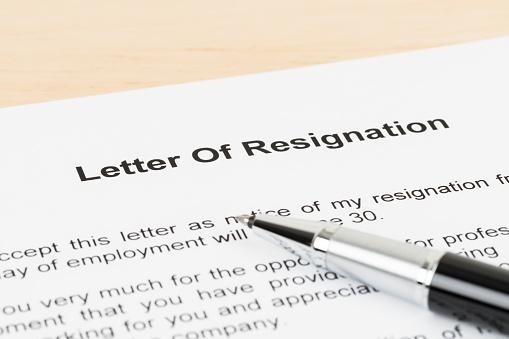There are a few key things to keep in mind when writing a resignation letter. First, you should decide when to write it- either before or after you’ve resigned from your job. Second, what to include in your letter will vary depending on the situation, but typically you’ll want to format it in a business-like manner and include:
- Your contact information.
- The date of your resignation.
- The terms of your notice period.
Finally, a few tips can help ensure your resignation goes as smoothly as possible. For example, you may want to consider how to word your resignation so that you don’t burn any bridges with your former employer. And once you’ve resigned, be sure to follow up with HR and wrap up any loose ends.
What to include in a resignation letter
A resignation letter is an official document you submit to your employer when you leave your job. In most cases, you will need to provide at least two weeks’ notice to your employer before you officially resign. Your resignation letter should be short and to the point. You will need to include the date of your last day of work, as well as a brief explanation of why you are leaving. If you have been with the company for a long time, you may also want to include a brief statement of appreciation for the opportunity to work there. However, it is not necessary to get too personal in your resignation letter; simply state that you have enjoyed your time with the company and wish them all the best in the future.
Tips for writing a resignation letter
So, you’ve made the decision to move on from your current job. Whether you’re retiring, taking on a new challenge, or simply changing industries, writing a resignation letter is an important first step. Here are a few tips to keep in mind as you compose your letter:
1. Keep it professional. This is not the time to vent your frustration with your current employer. Instead, focus on thanking them for the opportunity to work with them and highlighting your positive experiences.
2. Be direct. There’s no need to beat around the bush – simply state that you are resigning from your position, effective at a specific date.
3. Be positive. Even if you’re leaving because you’re unhappy with your current situation, try to maintain a positive attitude in your letter. This will help to smooth the transition for both you and your employer.
4. Offer assistance. If possible, offer to help train your replacement or wrap up any loose ends before you leave. This shows that you’re committed to maintaining a high level of professionalism, even in the face of change.
5. Keep it short and sweet. Your resignation letter doesn’t need to be pages long – just a few paragraphs will suffice. Save the details for a face-to-face conversation with your boss (if possible). If you are having difficulty writing one, then you can visit this website for a resignation letter sample.
Conclusion
When writing a resignation letter, it is important to keep in mind that it will become part of your permanent personnel file. The letter should be professional and free of any grammar or spelling errors. You should also focus on thanking your employer for the opportunity to work with them and offer to help train your replacement or wrap up any loose ends before you leave. By following these tips, you can ensure that your resignation letter is respectful and helpful.


